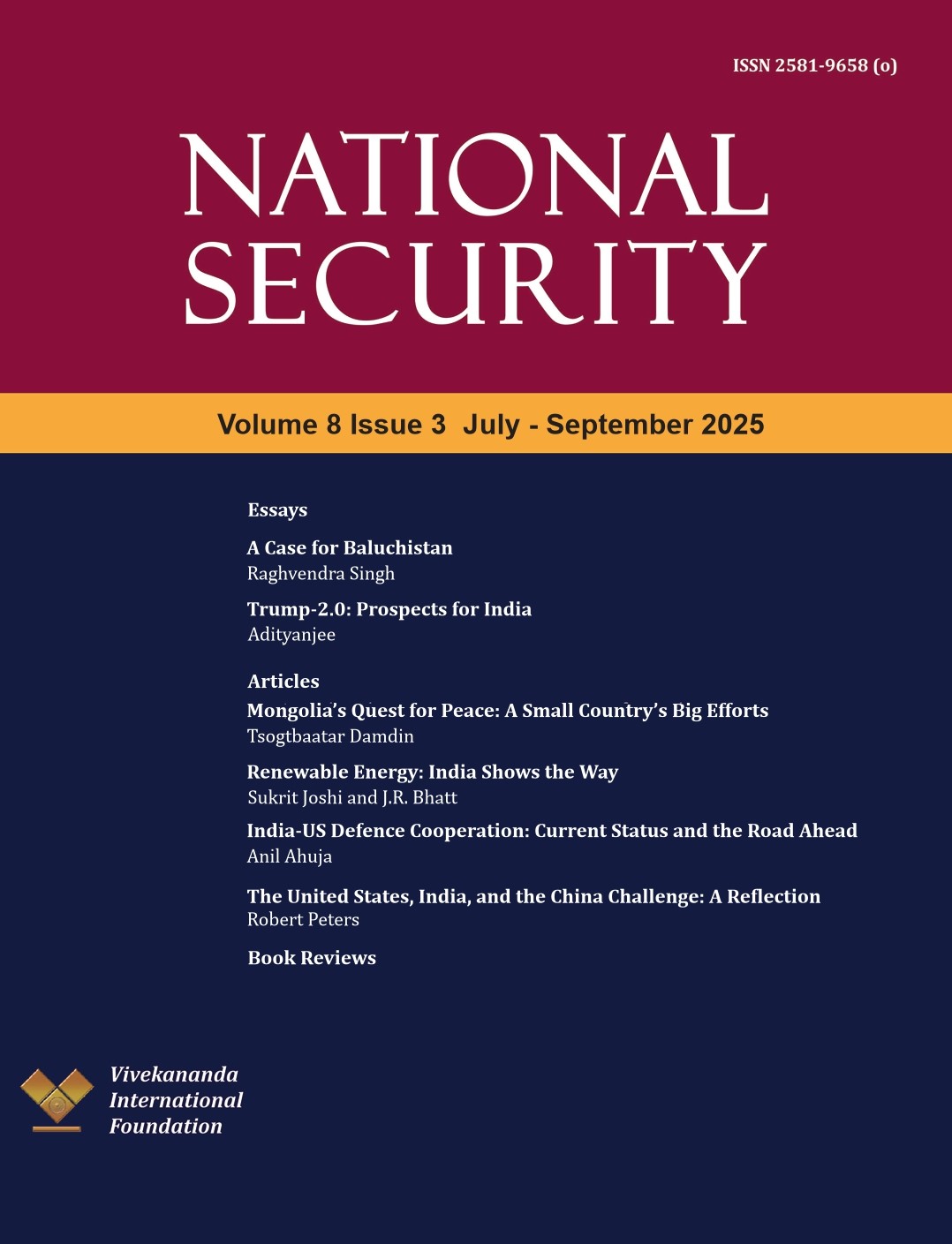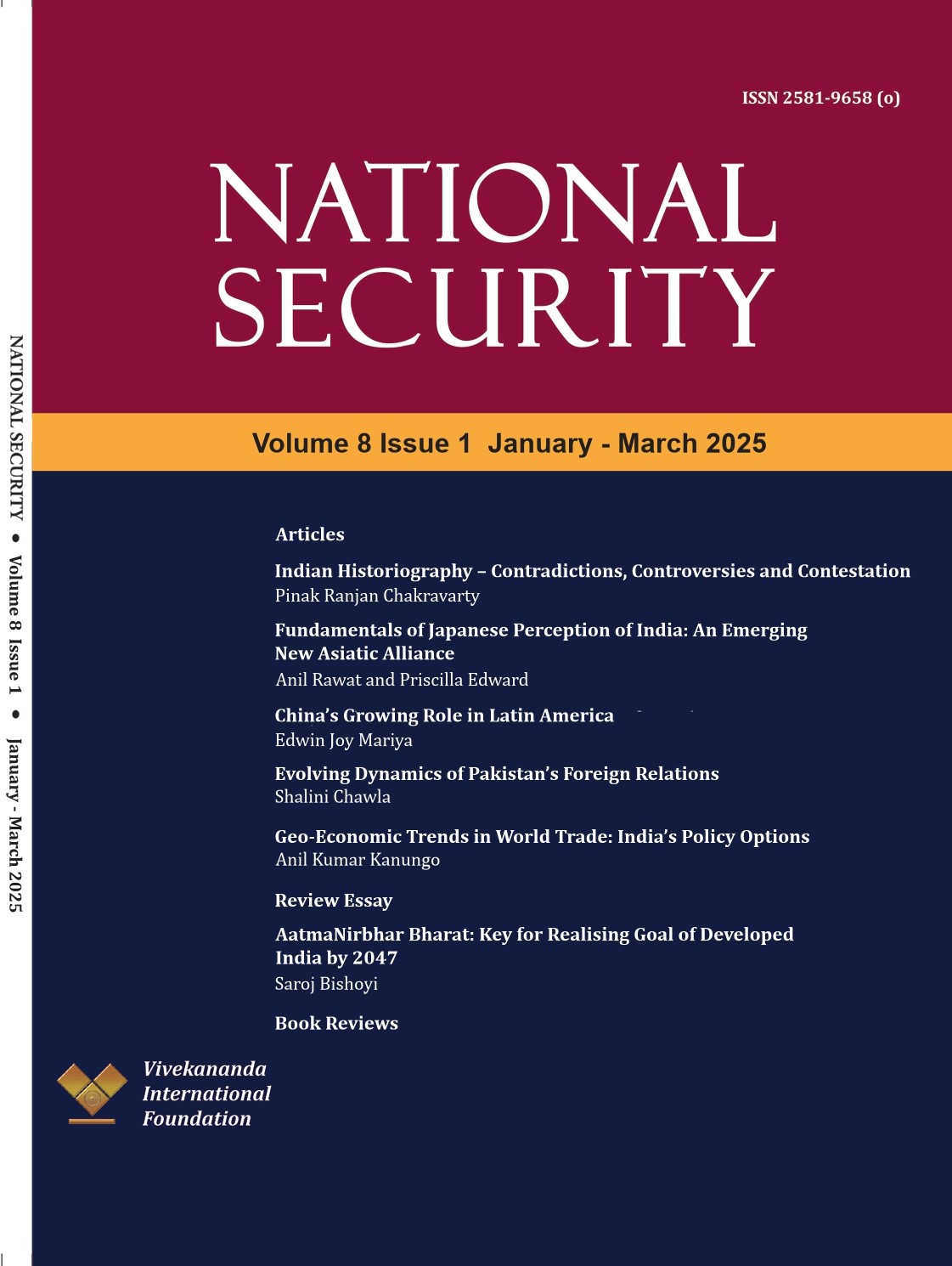National Security
Published in Association with Vivekananda International Foundation
Current Volume: 8 (2025 )
e-ISSN: 2581-9658
Periodicity: Quarterly
Month(s) of Publication: Mar, Jun, Sep & Dec
Subject: Political Science & International Affairs
DOI: 10.32381/NS
Online access is free for the Research Faculty of VIF
Article
Adaptation or Resistance? China-United States Relations Under Trump 2.0
By : Srikanth Kondapalli
Page No: 206-228
Abstract
The inauguration of Donald Trump as the 47th President of the United States on January 20, 2025 has major implications for bilateral relations with China, besides other countries. Both are the world’s largest economies, UN Security Council members, nuclear powers and have heft in regional and global orders. Four decades of “engagement cooperation” policies since President Richard Nixon’s visit in 1972 led to a consensus on the rise of China, stability in Taiwan Straits and nullifying Soviet challenge. While the US wants to retain its primacy, China announced in 2017 that it wants to occupy the “centre stage” leading to the “Thucydides Trap” – and acknowledged by both sides. It permeates bilateral relations, given the perception that China is “catching up” and “surpassing” the US’ comprehensive national power.
Trump’s first term witnessed tariff frictions on a major scale for the first time in bilateral relations, in addition to continuing tensions in the Taiwan Straits, the South China Sea, Indo-Pacific, the Global Commons and other areas. Trump rechristened the Asia-Pacific as Indo-Pacific in November 2017, triggering the revival of the QUAD. President Biden’s responses included “decoupling”, “small yard, high fence”, sanctions on Chinese companies and banning semi-conductor sales as well as continuing with levelling of tariffs. Trump 2.0 is expected to upend relations with China, barring the latter’s investments in the US and other tactical adjustments. It is argued in this article that while several similarities exist in mutual responses for the past decade, Trump 2.0 is poised to restructure bilateral relations further between the US and China with high stakes involved for both parties. By reflecting on issues such as diplomacy, trade and tariffs, Taiwan, technology, nuclear, Indo-Pacific and other issues, we argue that China is likely to resist the US on several of these issues.
Author:
Srikanth Kondapalli is a Professor in Chinese Studies at the Jawaharlal Nehru University (JNU), New Delhi. He was former Dean of School of International Studies, JNU from 2022-24. He was the Chairman of the Centre for East Asian Studies, SIS, JNU from 2008-10, 2012-14, 2016-18, 2018-20 and in 2022. He is Chair Professor under the Chair of Excellence of Ministry of Defence since August 2022. He learnt Chinese language at Beijing Language & Culture University and was a post-Doctoral Visiting Fellow at People’s University, Beijing from 1996-98.
DOI: http://doi.org/10.32381/NS.2025.08.02.7









